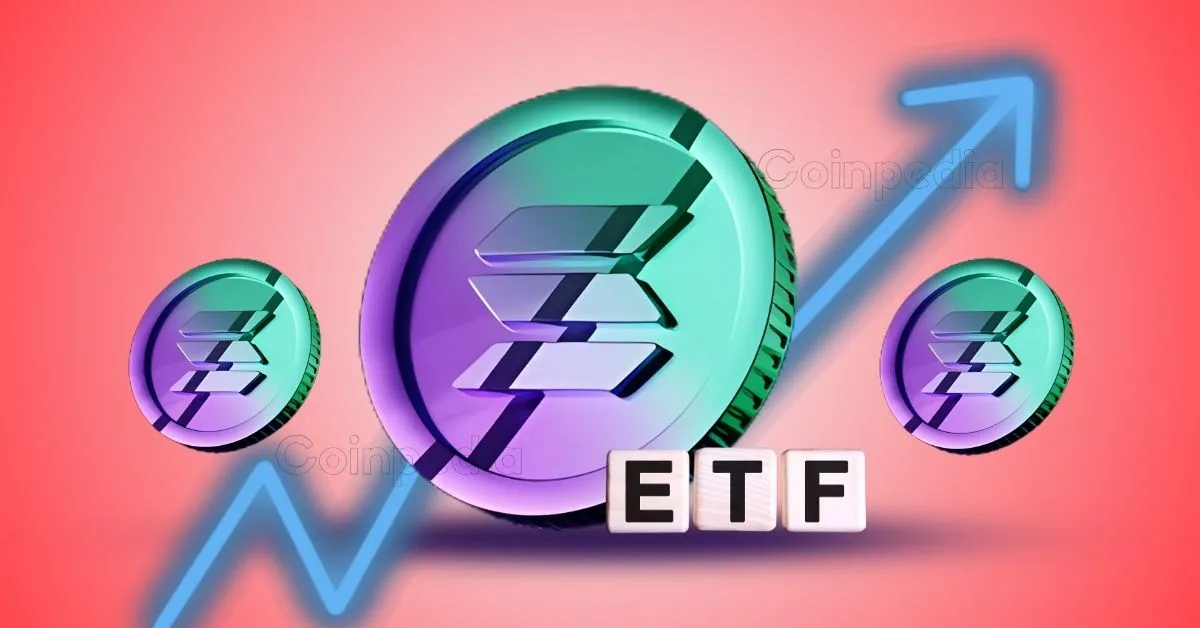The journey of a Solana (SOL) exchange-traded fund (ETF) through the U.S. Securities and Exchange Commission (SEC) approval process has been anything but straightforward. While Bitcoin ETFs have already made significant strides, bringing digital assets closer to traditional finance, Solana ETFs face a more complex regulatory landscape. The SEC’s cautious approach, coupled with market concerns and uncertainty, has created a challenging environment for Solana ETF applicants. This report explores the intricacies of the SEC’s stance on Solana ETFs, the reasons behind the delays, the potential implications for Solana and the broader crypto market, and what the future might hold.
The SEC’s Cautious Approach
The SEC’s primary responsibility is to protect investors and ensure fair and efficient markets. When it comes to crypto assets, the SEC has adopted a cautious approach, citing concerns about market manipulation, fraud, and the lack of regulatory oversight in the crypto space. These concerns have directly impacted the approval process for Solana ETFs.
One of the key reasons for the delays is the SEC’s ongoing review of its framework for crypto ETFs. The agency has requested applicants to resubmit amendments to their Solana ETF filings, indicating a need for clearer and more comprehensive risk disclosures. The SEC is particularly interested in plain-English explanations of the risks associated with Solana and the Solana blockchain, ensuring that potential investors fully understand the complexities involved.
The SEC’s concerns extend beyond disclosure requirements. The agency is also scrutinizing the underlying Solana market, looking for evidence of market manipulation or other illicit activities. The SEC’s recent decision to delay decisions on multiple spot Solana ETF applications, including those from Bitwise, 21Shares, VanEck, Canary Capital, and Fidelity, underscores the depth of these concerns.
Fidelity’s Solana ETF: A Case Study in Regulatory Hurdles
Fidelity’s proposed Solana ETF serves as a prime example of the challenges faced by asset managers seeking to bring Solana-based investment products to market. Despite Fidelity’s established reputation and experience in the ETF space, its Solana ETF has encountered repeated delays.
The SEC has extended the review period for Fidelity’s filing until mid-2025, indicating that a final decision is not expected anytime soon. The agency has also opened a 21-day public comment period to gather input on whether the Fidelity Solana Fund should be approved or disapproved. This public comment period reflects the SEC’s desire to consider a wide range of perspectives before making a final determination.
Market Sentiment and Solana’s Resilience
Despite the regulatory headwinds, Solana has demonstrated remarkable resilience. The price of SOL has shown upward movement even amidst the uncertainty surrounding the ETF approvals, reflecting the underlying strength of the Solana ecosystem and the continued interest from investors.
According to data from Polymarket, the odds of the SEC approving a Solana ETF by fall 2025 have risen to 76%, suggesting a degree of optimism within the market. This optimism may be fueled by the belief that the SEC will eventually come to terms with the growing maturity of the crypto market and the potential benefits of offering regulated investment products like Solana ETFs.
The Indirect Route: Staking ETFs
While spot Solana ETFs face an uncertain future, some asset managers are exploring alternative strategies to provide investors with exposure to Solana. REX-Osprey has launched a Solana staking ETF, which offers indirect exposure to Solana by integrating staking rewards. This innovative approach allows investors to earn yield on their Solana holdings while navigating the regulatory complexities of direct spot ETFs.
The REX-Osprey SOL+Staking ETF, slated to launch on July 2, 2025, represents a significant development in the Solana investment landscape. By incorporating staking rewards, this ETF offers a unique value proposition that could attract investors seeking both capital appreciation and passive income.
Implications for the Broader Crypto Market
The SEC’s decision on Solana ETFs will have far-reaching implications for the broader crypto market. A rejection of Solana ETFs could be seen as a setback for the entire industry, signaling continued regulatory resistance to crypto-based investment products. On the other hand, an approval could pave the way for other altcoins to follow suit, opening up new avenues for institutional investment and mainstream adoption.
The outcomes regarding the spot ETF applications from major asset managers, including Grayscale, Franklin Templeton, and Bitwise for XRP, are also being closely monitored. These decisions will likely influence the SEC’s overall approach to crypto ETFs and its willingness to embrace digital assets as legitimate investment vehicles.
Looking Ahead: Potential Scenarios and Key Considerations
As the SEC continues its review of Solana ETFs, several potential scenarios could unfold:
- Scenario 1: Full Approval: The SEC approves one or more spot Solana ETFs, marking a significant victory for the crypto industry. This scenario would likely lead to increased institutional investment in Solana and a broader acceptance of crypto assets within traditional finance.
- Scenario 2: Continued Delays and Rejections: The SEC continues to delay or reject Solana ETF applications, citing ongoing concerns about market manipulation and investor protection. This scenario could dampen market sentiment and slow down the adoption of Solana as an investment asset.
- Scenario 3: Conditional Approval: The SEC approves Solana ETFs with certain conditions, such as enhanced surveillance measures or restrictions on the types of investors who can participate. This scenario would represent a compromise between the SEC’s regulatory concerns and the market’s desire for access to Solana-based investment products.
The Crypto World’s Hope
The SEC’s ongoing evaluation of Solana ETFs is a pivotal moment for the crypto market. While regulatory hurdles remain a significant challenge, Solana’s resilience and the innovative approaches of asset managers like REX-Osprey offer a glimmer of hope. The path to regulatory approval may be long and winding, but the potential rewards for Solana and the broader crypto industry are substantial. The crypto world watches with anticipation as the SEC navigates this complex landscape, hoping for a decision that balances regulatory caution with the innovative potential of digital assets.

